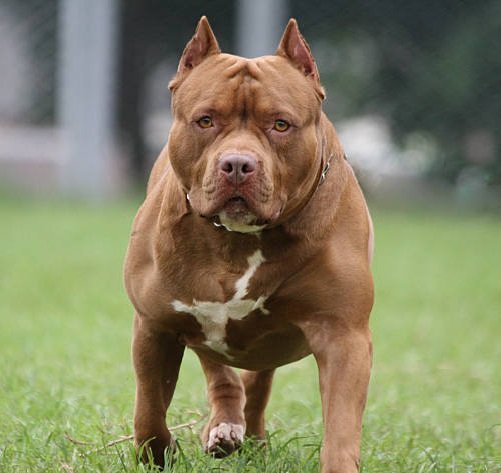Introduction: Why Is My Dog Shaking
If you’re a dog owner, opportunities are you have been given and found your bushy buddy trembling, shivering, or shaking subsequently. While now and again shaking is innocent — which incorporates after a bath or whilst your dog is glad — in one-of-a-kind instances, it could suggest a severe scientific situation or emotional distress.
Many puppy parents panic and right away ask: “Why is my dog shaking?” Understanding the inspiration motives is vital to make certain your dog receives the proper care. This unique guide covers all feasible reasons your canine can be shaking, a way to end up aware about signs and symptoms and symptoms and symptoms, what you could do at home, and even because it’s time to try to find advice from a veterinarian.
Common Causes of Dog Shaking
1. Normal Behavioral Reasons
- Excitement or Happiness: Dogs often shake after they see their preferred human, at some stage in playtime, or before walks.
- Drying Off: After a bath or swimming, dogs shake to put off greater water.
- Stretching or Resetting Muscles: Some puppies do a brief “shake-off” to alleviate anxiety.
2. Environmental Causes
- Cold Weather: Dogs shiver much like humans once they feel bloodless. Small breeds, puppies, and quick-haired puppies are more inclined.
- Fear or Anxiety: Thunderstorms, fireworks, or surprising environments also can additionally motive trembling.
- Stressful Situations: Trips to the vet, new pets at home, or changes in normal can bring about tension-related shaking.
3. Medical Causes
- Pain or Injury: Shaking can also moreover advocate pain because of arthritis, damage, or distinct painful situations.
- Nausea or Motion Sickness: Dogs also can tremble within the occasion that they revel in ill, mainly inside the route of car rides.
- Poisoning or Toxic Reaction: Ingesting chocolate, xylitol, or toxic plant life can cause tremors.
- Neurological Disorders: Conditions like seizures or degenerative diseases can also furthermore reason continuous shaking.
- Generalized Tremor Syndrome (GTS): Also known as “White Shaker Dog Syndrome,” typically visible in small breeds.
- Infections and Illnesses: Distemper, kidney disorder, or Addison’s sickness can result in tremors.
- Old Age: Senior dogs regularly experience tremors because of weakening muscle corporations and traumatic machine modifications.
Symptoms to Watch Alongside Shaking
If your dog is shaking, have a study for more signs and signs that would endorse some issue more intense:
- Vomiting or diarrhea
- Loss of urge for food
- Difficulty on foot or standing
- Excessive drooling
- Seizures or disintegrate
- Lethargy or susceptible aspect
- Whining or signs and symptoms of ache
When to See a Vet
You want to seek advice from a veterinarian proper away if your dog’s shaking is accompanied with the aid of:
- Sudden and unexplained tremors
- Difficulty respiratory
- Swollen stomach
- Seizures
- Extreme lethargy
- Unresponsiveness
Emergency conditions which encompass poisoning, heatstroke, or excessive damage require right away medical attention.
How to Help a Shaking Dog at Home
- Keep Them Warm – Provide blankets or a heated canine mattress in cold weather.
- Calm Anxiety – Use slight reassurance, calming songs, or anxiety jackets.
- Hydration & Nutrition – Ensure your canine is properly-fed and hydrated.
- Avoid Stressors – Reduce exposure to loud noises and uncommon triggers.
- Safe Space – Create a relaxed corner where your canine feels steady.
If shaking continues however home treatments, time desk a vet check-up.
Treatment Options Based on Cause
| Cause of Shaking | Possible Treatment/Action | Veterinary Help Needed? |
|---|---|---|
| Cold or Weather-Related | Warm blankets, dog sweaters, heated bed | No, unless persistent |
| Excitement or Happiness | Normal behavior, no treatment needed | No |
| Anxiety or Fear | Calming aids, behavior training, anti-anxiety medications | Sometimes |
| Pain or Injury | Rest, pain management, possible surgery | Yes |
| Poisoning or Toxic Ingestion | Emergency vet visit, induced vomiting, activated charcoal | Yes, immediately |
| Neurological Disorders | Long-term medication, monitoring, supportive care | Yes |
| Old Age | Joint supplements, mobility aids, comfortable bedding | Sometimes |
| Infections (e.g., Distemper) | Antibiotics, fluids, supportive care | Yes |
| Addison’s Disease | Hormonal therapy, lifelong management | Yes |
| Motion Sickness | Travel training, anti-nausea medication | Sometimes |
Read More: Cute Puppy
Preventing Shaking in Dogs
- Regular Vet Visits: Early analysis can prevent excessive situations.
- Balanced Diet: Ensures wholesome muscle groups and nerves.
- Safe Environment: Keep toxic meals and vegetation out of reach.
- Proper Training: Reduce tension triggers thru desensitization.
- Exercise: Keeps muscle tissues sturdy and improves intellectual fitness.
Myths About Dog Shaking
- Myth 1: Dogs shake pleasant after they’re bloodless.
- → False. Dogs shake for emotional, behavioral, and medical reasons.
- Myth 2: Small breeds constantly shake.
- → Not authentic. While small dogs can be extra willing, excessive shaking has to be investigated.
- Myth 3: Shaking is innocent.
- → Incorrect. Persistent shaking also can imply excessive health trouble.
Conclusion
So, why is my dog shaking? The solution can range from truly harmless delight to extreme scientific emergencies. As an accountable puppy figure, it’s crucial to take a look at more signs, maintain a regular vet, take a look at-ups, and provide comfort during worrying conditions.
If shaking is persistent, excessive, or accompanied via other stressful signs and symptoms, don’t put off looking for professional veterinary recommendation. Remember, early intervention can hold your dog’s existence.
Disclaimer
This article is for informational purposes only and should not replace professional veterinary advice. If your dog is shaking excessively or showing concerning symptoms, consult a licensed veterinarian immediately. Always seek expert guidance for diagnosis, treatment, or emergency care related to your pet’s health.





